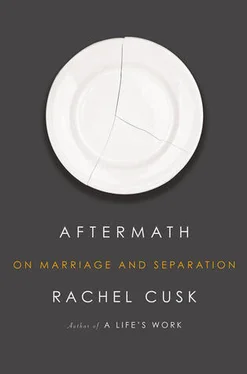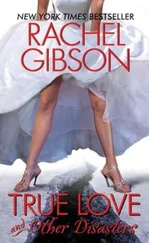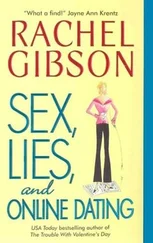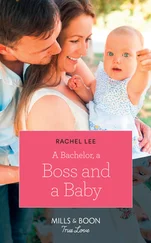A few of these working-mother friends of mine have taken the occasional domestic furlough, usually in the early years of parenthood. Like wanted criminals finally run to ground, they surrender with their hands up: yes, it was all too much, too unworkable, the running hither and thither, the guilt, the pressure at work, the pressure at home, the question of why — if you were never going to see them — you went to the trouble of having children in the first place. So they decide to stay at home for a year or two and even things up a bit, like the cake mixture the recipe tells you to divide between two tins, of which there always seems to be more in one than the other. Their husbands also work, live in the same houses and parent the same children, yet don’t seem to experience quite the same measure of conflict. In fact, sometimes they actually look like they’re better at being working parents than women are — insufferable male superiority!
But a man commits no particular heresy against his sex by being a good father, and working is part of what a good father does. The working mother, on the other hand, is traducing her role in the founding myths of civilisation on a daily basis — no wonder she’s a little harassed. She’s trying to defy her own deep-seated relationship with gravity. I read somewhere that a space station is always slowly falling back to earth, and that every few months or so a rocket has to be sent to push it back out again. In rather the same way, a woman is forever dragged at by an imperceptible force of biological conformism; her life is relentlessly iterative; it requires energy to keep her in orbit. Year after year she’ll do it, but if one year the rocket doesn’t come then down she’ll go.
The stay-at-home mum often describes herself as lucky: that’s her pitch, her line, should anyone — a working mother, for instance — care to enquire. We’re so lucky that James’s salary means I don’t have to work, she’ll say, as though she took a huge punt on a single horse and found that she’d backed a winner. You don’t catch a man saying he feels lucky to be able to go to the office every day. Yet the stay-at-home mum often calls it a privilege, to be ‘allowed’ to do her traditional and entirely unexceptional domestic work. It’s a defensive statement, of course — she doesn’t want to be thought of as lazy or unambitious — and like much defensiveness it (barely) conceals a core of aggression. Yet presumably she is elated when her daughter comes top in the maths test, gets a place at Cambridge, becomes a nuclear physicist. Does she wish it for her daughter, that privilege, the time-immemorial life at home with children? Or does she think this is a riddle that someone in the future will somehow just solve, like scientists inventing the cure for cancer?
I remember, when my own children were born, when I first held them and fed them and talked to them, feeling a great awareness of this new, foreign aspect of myself that was in me and yet did not seem to be of me. It was as though I had suddenly acquired the ability to speak Russian: what I could do — this women’s work — had so much form of its own, yet I didn’t know where my knowledge of it had come from. In some ways I wanted to claim the knowledge as mine, as innate, but to do that seemed to involve a strange kind of dishonesty, a pretending. But how could I pretend to be what I already was? I felt inhabited by a second self, a twin whose jest it was — in the way of twins — to appear to be me while doing things that were alien to my own character. Yet this twin was not apparently malign: she was just asking for a degree of freedom, a temporary release from the strict protocol of identity. She wanted to act as a woman, a generic woman, but character is not generic. It is entirely and utterly specific. To act as a mother, I had to suspend my own character, which had evolved on a diet of male values. And my habitat, my environment, had evolved that way too. An adaptation would be required. But who was going to do the adapting? I was aware, in those early days, that my behaviour was strange to the people who knew me well. It was as though I had been brainwashed, taken over by a cult religion. I had gone away — I couldn’t be reached on the usual number. And yet this cult, motherhood, was not a place where I could actually live. It reflected nothing about me: its literature and practices, its values, its codes of conduct, its aesthetic were not mine. It was generic too: like any cult, it demanded a complete surrender of identity to belong to it. So for a while I didn’t belong anywhere. As the mother of young children I was homeless, drifting, itinerant. And I felt an inadmissible pity for myself and for my daughters in those years. It seemed, almost, catastrophic to me, the disenchantment of this contact with womanhood. Like the adopted child who finally locates its parents only to discover that they are loveless strangers, my inability to find a home as a mother impressed me as something not about the world but about my own unwantedness. I seemed, as a woman, to be extraneous.
And so I did two things: I reverted to my old male-inflected identity; and I conscripted my husband into care of the children. He was to take the part of that twin, femininity. He was to offer her a body of her own to shelter in, for she didn’t seem able to find peace in me. My notion was that we would live together as two hybrids, each of us half male and half female. That was equality, was it not? He gave up his law job, and I gave up the exclusivity of my primitive maternal right over the children. These were our preparatory sacrifices to the new gods, whose future protection we hoped to live under. Ten years later, sitting in a solicitor’s office on a noisy main road in north London, my maternalism did indeed seem primitive to me, almost barbaric. The children belong to me — this was not the kind of rudimentary phrase-making I generally went in for. Yet it was the only thought in my head, there in the chrome and glass office, with the petite solicitor in tailored black sitting opposite. I was thin and gaunt with distress, yet in her presence I felt enormous, rough-hewn, a maternal rock encrusted with ancient ugly emotion. She told me I had no rights of any kind. The law in these cases didn’t operate on the basis of rights. What mattered was the precedent, and the precedent could be as unprecedented as you liked. So there was no primitive reality after all, it seemed. There was no such thing as a mother, a father. There was only civilisation. She told me I was obliged to support my husband financially, possibly forever. But he’s a qualified lawyer, I said. And I’m just a writer. What I meant was, he’s a man. And I’m just a woman. The old voodoo still banging its drum, there in the heart of marital darkness. The solicitor raised her slender eyebrows, gave me a bitter little smile. Well, then he knew exactly what he was doing, she said.
Summer came, clanging days of glaring sunshine in the seaside town where I live, the gulls screaming in the early dawn, a glittering agitation everywhere, the water a vista of smashed light. I could no longer sleep; my consciousness filled up with the lumber of dreams, of broken-edged sections of the past heaving and stirring in the undertow. At the school gate, collecting my daughters, the other women looked somehow quaint to me, as people look when seen across a distance. I saw them as though from the annihilated emptiness of the ocean, people inhabiting land, inhabiting a construction. They had not destroyed their homes. Why had I destroyed my home? Visiting my sister, I sat in her kitchen while she folded laundry. I watched her fold her husband’s shirts, his trousers. It shocked me to see these male garments, to see her touching them. She seemed to be touching something forbidden. Her right to handle these forbidden items overwhelmed me.
Читать дальше












